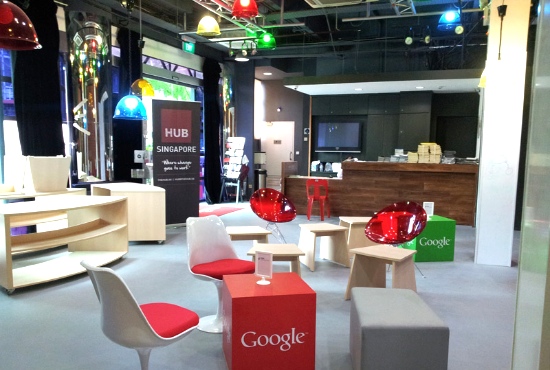With WeWork now worth a cool $5billion and spaces springing up all over the world, from African tech hubs to snow-capped mountains in Canada, this community-rich style of working has become part of the norm for startups, freelancers and professionals everywhere.
Southeast Asia is enjoying its share of the coworking spotlight too.
Terence Lee, Managing Editor for online publication Tech in Asia, has been following the trend closely. “We spotted 38 of them at last count, and that’s an under-estimation,” he said, commenting on South Asia’s growing coworking community.
According to his findings, the region’s coworking fraternity has also become hot property for investors. Thai coworking space Hubba has received significant investment from venture capital firms 500 Startups, Golden Gate Ventures and Ardent Capital.
Now The Hub in Singapore, part of the global Impact Hub network, has raised $1.1 million (S$1.5 million) in a “series A” round from a prominent angel investor.
“Unite the region through entrepreneurship”
In an exclusive interview with Tech in Asia, Impact Hub Singapore co-founder and CEO, Grace Sai, said of the unnamed investor:
“He wants to unite the region. He wants to do something that brings Southeast Asia together. So he thinks we’re the pioneer of ecosystem building in this way in Singapore. And in the years to come we can unite the region through entrepreneurship.”
There is strength in numbers, and the global Hub network is currently over 60 locations strong. Yet each Hub is run independently, and this $1.1m investment is earmarked solely for The Hub Singapore.
In addition to funding, Tech in Asia’s interview with Sai revealed interesting findings about the management and direction of the coworking space, which was launched in 2012:
It became profitable seven months after launch, and now has over 500 paying members. Sponsorship has become a major source of income. Memberships used to constitute 90 percent of revenue; they now make up 60 percent.
“Because we’re a very neutral platform, we attract a lot of partners who support our intentions […] we are [one of a few coworking spaces in Singapore] that was founded to build the entrepreneurship ecosystem,” says Sai.
Indeed, the question over whether or not coworking can be profitable by paying members has been answered by a spate of closures.
As with any successful business, diversifying and reacting to market trends is a vital element in remaining profitable and securing a sustainable future. In addition to sponsorship funding, Sai plans to introduce more services – such as marketing, legal and accounting support – and later, broker services to help members set up partnerships or growth initiatives with government and corporate organisations.
In other words, it’s what Sai calls a “one-stop startup factory.” She has also secured partnerships with various government and corporate organisations, creating a network of support for the space itself.
With nearly 500 members, a healthy flow of inward investment and self-generating service revenue, The Hub Singapore is certainly hot property. Its website states “you’ll never walk alone” and, backed by a global network of 60+ Impact Hubs with a strong web of local support, partners and investors, it’s hard to disagree.



 Dr. Gleb Tsipursky – The Office Whisperer
Dr. Gleb Tsipursky – The Office Whisperer Nirit Cohen – WorkFutures
Nirit Cohen – WorkFutures Angela Howard – Culture Expert
Angela Howard – Culture Expert Drew Jones – Design & Innovation
Drew Jones – Design & Innovation Jonathan Price – CRE & Flex Expert
Jonathan Price – CRE & Flex Expert











